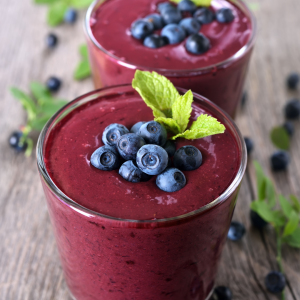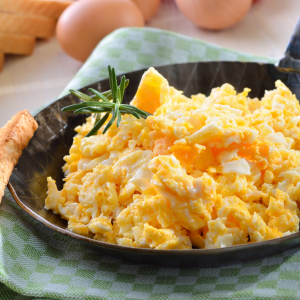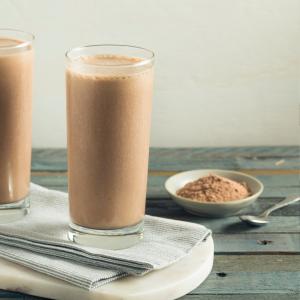Without a doubt, one of the most important benefits of dental implants is being able to enjoy all your favourite foods with absolutely no pain. In fact, dental implants present the only long-term solution that allows you to speak, eat, and smile the same way you would be able with a full set of natural teeth. At Rockcliffe Dental & Denture Centre, we are ready to stay on guard of your beautiful and functional smile. In this article, we are going to answer one of the most common questions we receive from our patients: “What can I eat after the dental implant surgery?”
What Can You Eat After Dental Implant Surgery?
Once dental implants have completely healed and integrated with your jawbone, they can give you the chewing strength required to enjoy all of your favorite foods. However, it is important to follow a soft dental implant recovery diet in the weeks following the procedure.
What to Eat the Day After Implant Surgery: Cool Liquid Diet
Right after the placement of your dental implant, your jaw and teeth will be in a very delicate state. Approximately an hour after your dental implant surgery, you may take out the gauze sponges that have been placed on the surgery site and have something to eat.
Post-Dental Implant Diet Guidelines
During the first 24-48 hours, you should stick to a cool liquid diet, which means:
 Avoid any hot foods or beverages and consume only cool liquids instead.
Avoid any hot foods or beverages and consume only cool liquids instead.- Do not drink through a straw or from a water bottle that requires suction, as this could put pressure on your implant site.
- Do not smoke or drink alcoholic beverages for at least a few days.
Food to Eat After Dental Implants
Focus on eating cold foods that do not involve any chewing and are packed with nutrients:
- Smoothies. Smoothies are nutritious, filling, and easy to pack with important vitamins for restored energy. They don’t require any chewing, which makes them ideal for after your surgery.
- Cold soups. Right after the surgery, it is important to avoid hot foods, but you can safely enjoy cold soups like gazpacho.
- Applesauce. At this point in your treatment, you won’t be able to bite into an apple, but applesauce includes all the same nutrients in an implant-safe form.
- Other cool liquid foods, such as fruit juices and nectars, pudding and Jell-O, milk and milkshakes.
What to Eat in the Weeks After Implant Surgery: Soft-Food Diet
During the first three months of dental implant healing, you would have to follow a soft-food diet. During this time, your dental implants will integrate with the jawbone, and you might be wearing a temporary prosthesis, which is not meant to be used to chew crunchy or hard foods.
 At this time, it is important to choose meals that are rich in protein and other important nutrients to speed up your recovery. Some of the recommended foods that are easy to chew include:
At this time, it is important to choose meals that are rich in protein and other important nutrients to speed up your recovery. Some of the recommended foods that are easy to chew include:
- Eggs and omelets. Eggs are soft and filled with protein. For a well-balanced meal, you can mix them with finely chopped vegetables and make an omelet.
- Milk, yogurt, and cheese. Dairy products contain lots of calcium and protein that aid in healing and are necessary to keep your teeth strong.
- Potatoes. One of the most difficult parts of following a soft-food diet is the lack of variety. Potatoes have a soft texture and can be prepared in a variety of ways, which makes them an excellent choice for the weeks following your implant surgery.
- Fish, chicken, and ground beef. After the first week, you can start to slowly reintroduce meat into your diet. Go for softer options, such as fish, chicken, and ground beef and finely chop them to add to salads or pasta.
- Other soft foods. Feel free to indulge in soft fruits like bananas or peaches, eat steamed vegetables, soft bread, pasta, oatmeal, and more.
Foods to Avoid After Dental Implant Surgery
To prevent damaging your new implant, avoid the following foods for the first couple of weeks after the surgery:
- Crunchy foods, such as chips and popcorn
- Tough foods, such as some fruits and vegetables
- Chewy foods, such as bagels and gummies
- Sticky foods, such as taffy and caramel
- Acidic foods, such as tomatoes and oranges
- Spicy foods, such as salsa and hot peppers
- Very hot foods and drinks, such as soup or coffee
Getting Enough Nutrition After Dental Implant Surgery
 After your dental implant procedure, you will be incredibly excited to return to your normal diet again. However, it is important to eat appropriate foods during each stage of your healing process and follow the recommendations of Dr. Koniouchine.
After your dental implant procedure, you will be incredibly excited to return to your normal diet again. However, it is important to eat appropriate foods during each stage of your healing process and follow the recommendations of Dr. Koniouchine.
- Eat regularly. While recovering after the dental implant surgery, it is crucial to eat and drink regularly, as this will help you heal more quickly and feel better overall. It will also give you more nourishment and energy.
- Add protein supplements. Many of our patients struggle with getting enough protein. As such, we often advise adding protein supplements to your diet.
- Stick to the post-dental implant diet. The first couple of days after the surgery may be a little uncomfortable, so it is important to follow the soft dental implant recovery diet to ensure that you are not aggravating your healing process.
- If you have diabetes, check your glucose frequently. Maintain your regular eating habits and keep track of your glucose levels. This is important to avoid diabetic-related complications and prevent infection.
Restore the Function and Aesthetics of Your Smile With Dental Implants
If you are missing one or more teeth, Dr. Koniouchine at Rockcliffe Dental & Denture Centre can restore your smile with dental implants. Give us a call today at 613-7464-600 to schedule your dental implant consultation.
Post-Dental Implant Diet FAQ
For a minimum of three days after the surgery, it is crucial to avoid using a straw and drink directly from a glass instead. Using a straw with a sucking motion will put pressure on the surgical site and can cause additional bleeding.
It is important to refrain from drinking carbonated or alcoholic beverages for the first 48 hours after the surgery, as they can irritate the surgical site.
Ice cream is both cold and soft, which makes it an ideal after-implant food. Feel free to treat yourself with ice cream on the day of your dental implant surgery, you deserved it!
While you should avoid nuts during the dental recovery process, you will be able to reintroduce them to your diet after your dental implants have fully healed. You will be able to return to eating popcorn, apples, nuts, carrots, and even taffy!
Getting sufficient amounts of protein is absolutely crucial during the healing process. Not only does protein help to build and repair tissues affected by the surgery, but it also helps your body to fight infection.
As you recover from the surgery, we recommend consuming more protein than you would usually do in order to boost your body’s healing abilities.
When most people think of protein-packed foods, meat and nuts come to mind first. While neither of these foods is great for after-implant recovery, there are other ways that you can keep your protein intake high:
- Enjoy protein-packed beans or eggs.
- Load up on soft dairy products, such as yogurt or cottage cheese.
- Try adding peanut butter, avocado, or protein powder to smoothies.
In the weeks after the surgery, you will be able to slowly reintroduce meat to your diet – just make sure to opt for softer meats, such as chicken, ground beef, and fish.
It is typical for patients to not have much of an appetite right after the oral surgery. You might also feel nervous to eat if you are concerned that it could hurt or damage your surgery site.
However, it is absolutely critical to give your body the fuel it needs to heal and recover! You will be given medication to ease the discomfort, and many patients actually find soft, cold foods to feel good on the delicate gum tissue. You might find that ice cream, milkshakes, and yogurt are especially soothing.
When deciding what you can eat after dental implant surgery, choose the soft foods you love and add extra protein wherever you can. Over time, your appetite will gradually return, and you will be able to eat a wider variety of foods.
Read More: